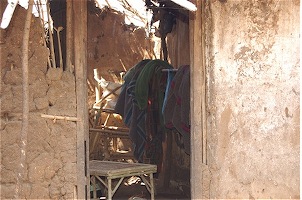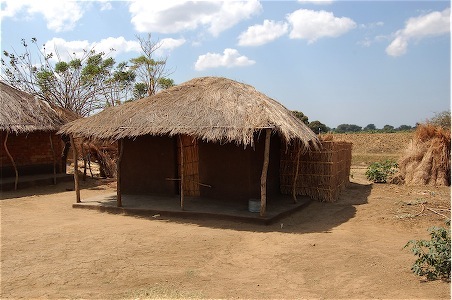.jpg)
When Issah Malunga reached Cool Runnings on the edge of the big lake the clean, neat little boy handed Samantha a letter of referral from a social welfare worker in Salima.
“Dear sir/Madam,
CHILD HEADED HOUSEHOLD
The bearer of this letter is Issah Malunga, aged 15, from Liganga village. Traditional Authority Kambwiri. He is a double orphan child who takes care of his 3 brothers and 3 sisters. Both parents passed away and he happens to be a household head. He goes to Chimbalanga LEA School and in Standard (Grade) 8.
The children lack physical, financial & educational support. They have nobody to support them and the youngest in the family is aged one. Hence I write to ask your good office to provide any kind of assistance to these vulnerable children. Thanks in advance.
Social Worker ……………..
For the District Social Welfare Officer”
Who could say “no”? Obviously not Ludick who has a soft spot in her heart for the children of Malawi. Within two days she had received clothing and food and given it to Issah for him and his brothers and sisters. Additionally she had obtained books, paper and pencil and plans to get him back in school.
Issah had described the route to the village where he lives and, although it is 32 kilometers away from Cool Runnings, Samantha made the trip to check on him and his siblings. When she arrived she found seven young children living in a broken down hut that looked like it was near collapse. It had gaping holes in the grass roof. The older boys had been trying to make some simple furniture to sell in order to provide some subsidence for the family. At night they would set the partial constructed furniture inside the house for safety and all seven of the children would sleep outside on the ground, exposed to the elements and to whatever harm might come their way in the darkness. The second oldest boy was often away trying to find piecework to help with the family.
In Malawi there is no program of federal aid that can help in situations like this one. Nor is there a district or state program to assist all of those in need. Nor is there any type of local community or village program that can help. There is just not enough to go around. In the village area of these children everyone lives on the edge of poverty and starvation. The unemployment rate near the lake is estimated to be in excess of 50% and for children 14, 15, or 16 there is little hope and little possibilities. Talking to the chief about the situation and looking around the village it was evident to Ludick that no one in the entire village had resources with which to assist the family.
Ludwick brought the story to members of the Malawi Project and together they were able to supply enough funds to build a house in which the children can live. Recently Ludwick met with the village chief and he expressed deep concern for the survival of the children if this project had not moved forward.
When Ludick offered her plan and the promise of the needed funding, the entire village teamed up to participate in helping the children. While the funds will come from Ludick and the Project team the village men and women have volunteered to make the bricks for the house as well as to gather and prepare the thatch for the roof. This will truly be a project in which the entire village will participate. The house will be completed before the torrential monsoon rains begin in mid-October. The house will include a fence to protect the children and a garden area where the children can raise their own crops. Samantha realizes this method of helping the children in their home village does not always work because of the village environment or for other reasons. But in this case the chief and villagers are willing to care for the children if they can remain nearby.
The children’s mother had been ill for a number of years, and the care of the children had fallen almost entirely on the father. He tried to eke out a meager living by doing piecework near their home south of Salima. In March 2007 the father was returning home on a mini-bus from a piecework job and was killed in a road accident. His death left young Issah 15, to care for his brothers and sisters as a child headed household.
Situations such as the one with Issah are becoming increasingly common at the resort on the lake where the people in the area are learning it is also a place of safety, refuge and assistance.
The Malawi Project is working with Ludick to help accomplish some of the goals she is putting into place in order to assist the people of Senga Bay and an ever-increasing and wider area near the lake.
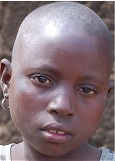
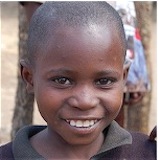
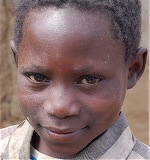
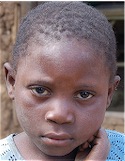
From left to right: Bamusi 14 (not present), Azigtalira 13, Rasheed 8, Akuperebe 5, Ngajirani 3, and Ganizani 1.
The following four pictures show their current home, and the last picture shows a model of what their new home will be like
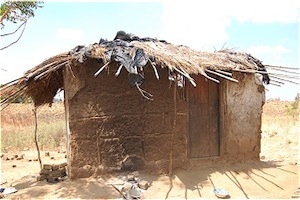
.jpg)
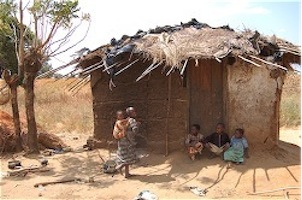


.jpg)
